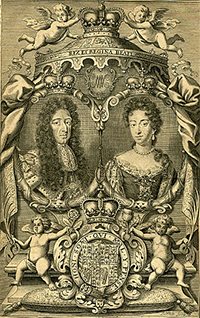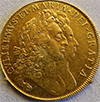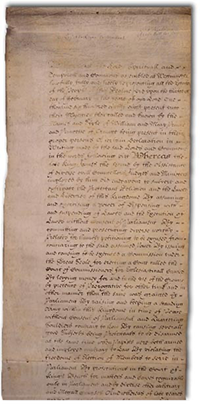England's Glorious Revolution
The Glorious Revolution was, in effect, a bloodless invasion and takeover of England by a foreign power, all sanctioned by a series of powerful English nobles and a large part of the army. It was, as the same time, a wide-ranging disenfranchisement of Catholics and the foundation for constitutional law.  When William and Mary were crowned, in 1689, Parliament drew up an official list of what many considered illegal acts by their predecessor, King James II, Mary's father. This list became known as the Declaration of Right and helped inform a new list of "conditions" by which the new king and queen would abide. This new list became known as the Bill of Rights. Its official title was An Act Declaring the Rights and Liberties of the Subject and Settling the Succession of the Crown. Among the provisions of the Bill of Rights were these laws:
Parliament also agreed to support William's war against France, which had been going on for some time. It became known as the Nine Years War after it ended, in 1697. An earlier related Act of Parliament was the Mutiny Act, which specified court-martial as the punishment of soldiers who were found to have committed desertion, mutiny, or sedition. When William had first arrived, a significant number of Scottish soldiers had gone home rather than follow William's orders to fight in Holland. 
Also passing Parliament at this time and gaining the royal assent was the Toleration Act, which prevented punishment of people who were not members of the Church of England and prevented the Church of the crown from requiring English people to join the Church. Those professing the Catholic faith, however, still could not hold public office or a position at a university. Further, a member of the royal family could not marry a Catholic, ensuring that no Catholic would again sit on the English throne. In the end, the Glorious Revolution and the Declaration of Rights (later revised as the Bill of Rights) ushered in a new era of constitutional monarchy, marking a permanent break with the divine right rule of previous monarchs and tipping the scale once and for all in favor of Parliament. |
|
Social Studies for Kids
copyright 2002–2026
David White



 Freedom of speech was guaranteed for all who called England home.
Freedom of speech was guaranteed for all who called England home.
